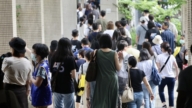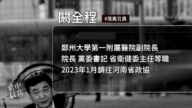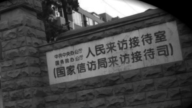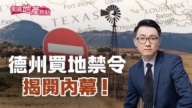【新唐人2011年10月31日讯】中共喉舌《新华社》10月26号发文,强调要加强对传统媒体和社交网络媒体的监管。不料,邻国缅甸在第二天就对外宣布解除对脸书 (Facebook)、推特(Twitter)及其他国际新闻媒体的网路封锁。大陆网友感叹,现在世界上仅存的实行网络管制的中国、朝鲜、古巴和伊朗,堪称“新四大文明古国”。
缅甸在10年前开始使用互联网,但官方一直采取非常严格的管制措施,屏蔽对政府不利的网站。今年新一届的缅甸政府上台,总统登盛在3月发表就职演说时表示,媒体的角色应该受到尊重。
在9月宣布解除对几个境外新闻网站如《美国之音》、《BBC》中文网和视频网站Youtube的长期封锁后,缅甸政府27号再次宣布,正式解除对社交网站脸书和推特及其他国际新闻媒体的网路封锁,标志着缅甸全面解禁网络封锁。
反观中国大陆,《新华社》26号全文刊登所谓的十七届六中全会精神报告,强调要加强对社交网路和即时通信工具等的管理。
深圳杂文家朱建国对《自由亚洲电台》表示,现在网路和微博实际上已经取代了中纪委和各级反腐局,所以,当局官员想把这个东西灭掉。他们声称的建设网上文化阵地,就是要合乎中共喉舌口径的微博,也就是五毛党的微博。
有大陆网友在微博发文嘲讽说,现在仍然封锁网络的中国和朝鲜、伊朗、古巴是“新四大文明古国”,暗指别人都接受文明了,他们却仍旧是个“古国”。
日本专门报导中国新闻的网站Searchina也发表文章戏称中国、朝鲜、古巴和伊朗为“网络独裁四天王”,讽刺这四个国家在互联网时代的封闭和倒退。
香港《阳光卫视》的中国新媒体人北风对《德国之声》表示,网友所戏称的“新四大文明古国”鲜明的共性是:专制独裁政体。
北风认为,中共维持统治的一大法宝就是“谎言”,互联网这些社交工具的存在,让中共感受到自由信息带来的危机很紧迫,这些信息对它的统治是一种威胁。
北风:“互联网这些社交工具的存在让中国(中共)对传统的互联网内容的控制,例如中国门户网站新闻发布的内容控制已经不管用了。中国(中共)尽管没有开放facecook,但其实中国有微博,也有《人人网》诸如此类的工具,在一个事情发生的时候,有关当局它是完全没有办法限制这类信息的传播。”
美国“新罕布希尔州大学”中国政治问题研究学者李道明认为,中国网民总是在寻找突破口,中共想要阻拦公共意见的汪洋大海,其实只能是望洋兴叹,中共会意识到他们能控制的只是一小部分而已。
而四川维权人士、六四天网负责人黄琦认为:
“当局对于互联网进行所谓有效管制的这种做法与国际潮流不相符合,也与互联网本身的特性完全背道而驰。它的特性就是能够完全自由的传递各种信息。当局的这种做法可以说是在民众的抗争过程中一路崩溃下来。”
黄琦还表示,在社交网路蓬勃发展的今天,虽然中共对于微博等社交媒体的控制力度越来越强,但要加强所谓的“网上文化阵地建设”也已经是越来越难。
新唐人记者李明飞、王明宇综合报导。
The ‘New Four Ancient Civilizations’
The Chinese Communist Party’s (CCP) mouthpiece,
Xinhua News Agency, published an article on October 26,
stressing the importance of strengthening traditional media
and social media monitoring.
Unexpectedly, the next day, neighboring Myanmar announced
that it would lift its current blockade of Face book, Twitter,
and other international social media networks.
Mainland netizens said, now the world’s remaining countries
implementing network controls are China, North Korea,
Cuba and Iran, or what is now called
the ‘New Four Ancient Civilizations.’
Myanmar started using the Internet some 10 years ago,
but its military regime enacted very strict control measures,
blocking any website critical of its rule.
In 2011, a new administration came to power,
under the rule of, President Thein Sein.
In his inaugural speech in March,
he said the media’s role should be respected.
In September, Myanmar announced the lifting of a long-term
blockade on several foreign news sites such as Voice of America, BBC, Chinese sites and video site, YouTube.
On October 27, the Myanmar government once again announced
the official lifting of blockades on Face book and Twitter,
as well as other international media networks,
which in effect amounts to a lifting of all Internet blockades.
On October 26, Xinhua News Agency published a report,
by the Sixth Plenary Session of the 17th CPC Central Committee
which stressed the need to strengthen the management
of social networks and instant messaging tools.
Zhu Jianguo, an Shenzhen City-based activist,
told Radio Free Asia, that due to networking and micro blogging,
the Central Discipline Inspection Commission
and all levels of the Anti-Corruption Agency, are no longer needed,
so, officials want to retire these organizations.
Instead, they want to construct an online cultural front,
that is, they want to use micro blogging as
a propaganda tool or mouthpiece for the CCP, i.e.,
the so called “Fifty-Cent Party” micro blogging.
A micro blog in mainland China mocked countries
that still restrict Internet access,
such as China, North Korea, Iran, and Cuba,
calling them the ‘New Four Ancient Civilizations,’
alluding to the fact that all others countries have accepted
modern civilization, but those four are still ‘ancient.’
The Japanese website, Searchchina,
which reports Chinese news, also published an article dubbing China,
North Korea, Cuba, and Iran
as the ‘Network Dictatorship’s Four Kings,’
showing the close-mindedness and backwardness
of the Four Kings in the Internet age.
Beifeng, a news media agent for Hong Kong’s Sun TV,
told Deutsche Welle that netizens dubbed these countries
as the ‘New Four Ancient Civilizations,’ because they have
one distinct common feature: they’re all autocratic regimes.
Beifeng said that lying is the magic tool that the CCP uses
to maintain its power.
The presence of these widely popular social networking tools
makes the CCP very nervous,
as it knows that if it doesn’t stop the free flow of information
on the Internet, its rule will be threatened.
Beifeng: “The presence of these social tools on the Internet
makes the CCP’s realize that the controls they have in place
on traditional Internet content, no longer works,
such as China News portal content.
Although there is no Face book in China,
there is micro blogging, and also the Renren Network, etc.
When something happens, the authorities have no way to limit
the dissemination of information.
Li Daoming, a researcher on Chinese political issues
in the State University of New Hampshire,
said that China’s netizens are always looking for
a way around the CCP’s Internet blockade.
The CCP desperately wants to block the sea of public views,
but in fact, it’s left feeling powerless and frustrated,
as it realizes that what it controls is only a small part
of the Internet.
The Sichuan activist and Skynet respondent, Huang Qi said:
“Chinese authorities called for the effective control of
the Internet, however, such an approach isn’t consistent with international trends,
and is also completely contrary to the characteristics of
the Internet, which allows for the free transfer of all kinds of information.
Due to the Chinese people’s resistance to China’s
Internet blockade, the CCP authorities’ approach has completely failed.”
Huang also said that today, in the booming world of
social networks, although the CCP has strengthened it’s control on micro blogging
and other social media, it’s becoming more and more difficult
to strengthen its control of the so-called ‘On-line cultural construction.’
NTD reporters Li Mingfei and Wang Mingyu































